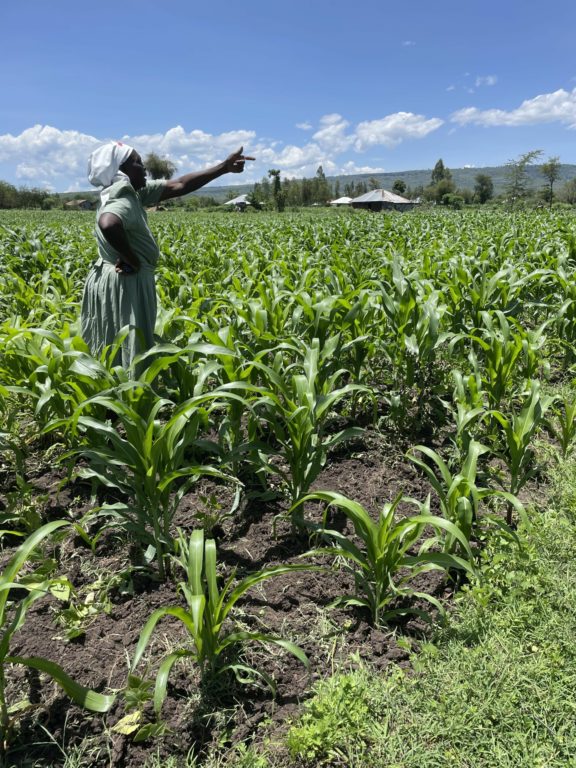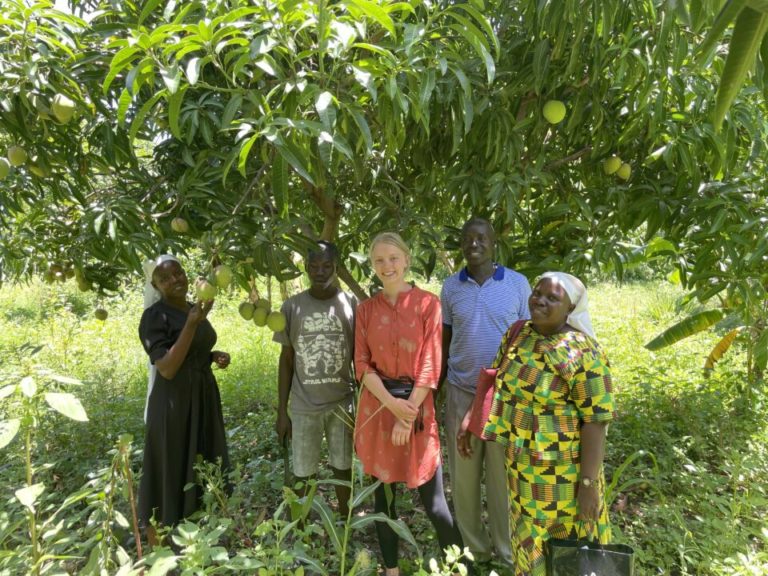
This blog post is written by Dickson Kinuthia, International Food Policy Research Institute, and Elsa Wallin, Swedish University of Agricultural Sciences. It was first published at CGIAR blog.
Nature-positive solutions face many barriers to adoption. Research in Kenya shows that entrenched gender roles, which tend to leave women the brunt of the work and lesser economic power, need to be considered for the successful implementation of nature-positive agriculture, particularly if it leads to higher farm income. The design and implementation of nature-positive solutions therefore requires keen attention to the gender divide.
Agricultural-based livelihoods, especially for women and other marginalized groups, are at risk due to multiple challenges including climate change, entrenched inequality, lack of investment to improve livelihoods and inadequate policy frameworks to support small-scale producers.
Additionally, the prioritization of mass-scale production of cheap food, industrial agriculture has inflicted a disastrous cost on the environment and people, leading to deforestation, land degradation, water depletion and biodiversity loss and increased global greenhouse gas emissions. global greenhouse gas emissions. This status-quo approach to agriculture adds to the challenges faced by smallholders, who rely on healthy, natural systems to eke out a living.
The CGIAR Nature-Positive Solutions Initiatives (NATURE+) aims to address these challenges by re-imagining, co-creating, and transforming agri-food systems to deliver food and livelihoods for people sustainably. This involves responsible natural resources management, enabling agriculture to be a net positive contributor to nature, and staying within planetary boundaries. Nature-positive solutions are critical for reducing and reversing biodiversity loss while improving food production and strengthening smallholder farmers’ resilience.
However, research remains limited on the gender-differentiated impacts of unsustainable agricultural practices, perception, awareness of and preferences for nature-positive solutions, and capacities to contribute to nature-positive food systems. A qualitative study conducted under the framework of NATURE+ in Kenya aims to shed light and understand gender differences in perception, awareness, constraints and incentives to the adoption of nature-positive solutions. The results presented here draw on this qualitative data collected in the Kenyan counties of Kajiado, Kisumu and Vihiga.

The overall pattern of labor division revealed clear gendered responsibilities. For example, women actively engaged in planting maize and vegetables for household consumption or lower-value market sales. Men engaged in planting beans, millet, and other crops that fetch higher prices in the market. Moreover, men were involved in field preparations such as ploughing, as this was perceived to be a challenging task that required a man’s strength. Women, on the other hand, played a key role in planting, weeding, and harvesting, often tedious and time-consuming tasks. Concerning livestock, men tended to own cattle, sheep, and goats while women often only owned poultry, which are less profitable.
Despite limited ownership of livestock, women played a significant role in caring for livestock. They were involved in feeding the animals and milking the cows. A male participant in Kajiado County explained that the woman in the household was responsible for milking the cows and cleaning the cowshed and “the man comes in only during the slaughtering and selling of cattle.”
In addition to the farm work, women carried a considerable burden of responsibilities in the home. This led women to work long hours and have less free time than men in general. In the literature, this is often referred to as time poverty, affecting women. Therefore, women have limited possibilities to participate in training on nature-positive solutions and to adopt beneficial agricultural practices that are more time-consuming, such as nature-positive practices.
Technology-adoption questions
Many farmers expressed a vision of a more mechanized agriculture future to run their farms. However, the adoption of technology could have both positive and negative gender outcomes. For example, the time-consuming activity of fetching water was the responsibility of women and children, but in case a motorcycle was used men were willing to help with the task, thus reducing the disproportionate allocation on household chores for women. Similarly, the threshing and winnowing of sorghum was another female-dominated task performed manually, but if machinery were used, men would be willing to participate. However, it could also have the contrary effect of men taking over and excluding women from the activity and as such keeping them from learning and limiting their influence on decision-making on sorghum cultivation and sale.
The gender division of labor and control of agricultural resources could vary slightly according to the household structure. Monogamous families had a clear structure of the man being the head of the household, overseeing decisions related to crops and livestock. In polygamous families, resources such as livestock and land were often strictly divided between the wives and therefore allowed for some more independence in decision-making. However, the husband was the ultimate owner, and the wives were still required to do the necessary labor to care for the men’s fields and livestock. In female-headed households, women were less confined by strict gender roles and could participate in tasks and acquire skills they were traditionally not given access to. Despite this, they often had low access to resources limiting the productivity and management of their farm.
Considering that women were in general disfavored when it came to agricultural resource access and ownership and had a disproportionate burden of time-consuming responsibilities, gender and women empowerment needs to be at the core when promoting nature-positive solutions or sustainable agricultural practices in general. Nevertheless, men could perceive it as threatening to their role as household heads and providers if women got too much influence in agricultural decision-making processes. A key take-away is therefore to work simultaneously to support women’s empowerment and educate and involve men to reduce the risk of tensions within the community. This is crucial in promoting long-term sustainability when supporting small-scale farmers in transitioning to nature-positive solutions.
In conclusion, nature-positive solutions are critical for restoration and prevention of further biodiversity loss and environmental degradation, while ensuring that agricultural production bridges the food and nutrition security gap. Understanding gender-differentiated roles, constraints, and preferences can enable policymakers and practitioners to design and promote nature-positive practices that meet men’s and women’s needs while protecting nature. These should be disseminated in ways that reach, benefit, and empower women. Gender-responsive design and scaling of nature-positive solutions can help reduce gender inequalities in agrifood systems, while enabling both men and women to contribute to environmental sustainability.


